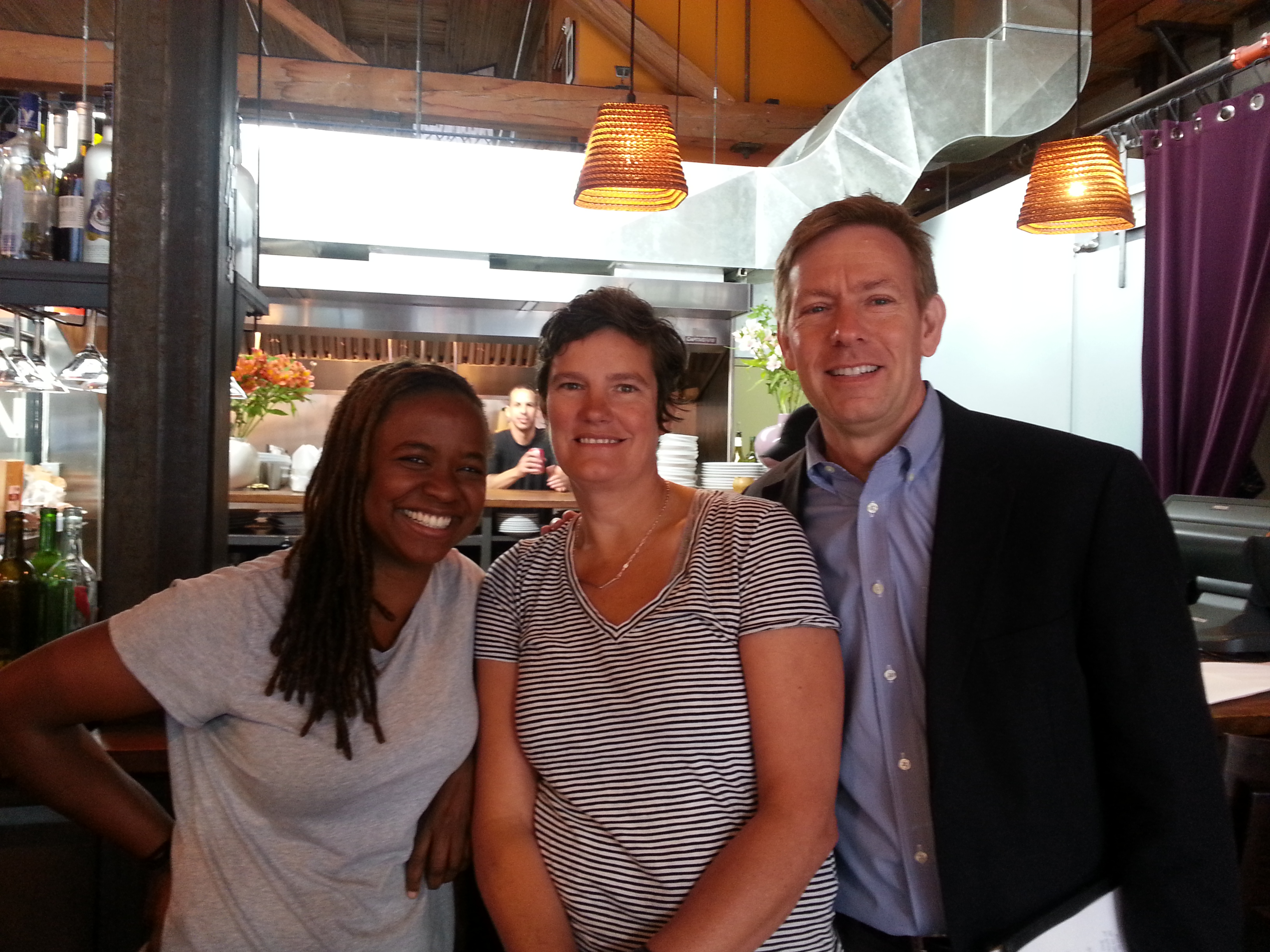
From the left, Makini Howell, Jody Hall and Joe Fugere celebrating one year of paid sick days in Seattle.
- One year after Seattle’s paid sick days law took effect, local businesses owners joined the small business group Main Street Alliance to present a new report on the economic impacts of the law.
Joe Fugere, owner of Tutta Bella Neapolitan Pizzeria; Makini Howell, owner of Plum Bistro and Jody Hall, owner of Cupcake Royale, each shared how their businesses have continued to grow and prosper – and all while providing paid sick days to their employees.
At Tutta Bella, Fugere decided to use a paid time off system that allows employees to use the time they earn for sick leave, vacation or even to go see their daughter’s violin recital. The cost for such a system? One-half of one percent of revenue. “Message to big business and lobbyist: wringing savings out of your employees is really a false profit,” said Fugere. “My support has only grown stronger because of my experience.”
Howell, who had provided employees with paid sick days even before Seattle’s law passed, noted paid sick leave only costs her about $300-$400 a year for her 35-person business. “You don’t have to bring in a specialist to redo the payroll,” Makini noted. “So no, we’re not raising the costs of cupcakes or pizza or tofu to offset that.”
Hall stated that her business has continued to expand since the paid sick days ordinance went into effect. She’ll soon be opening a new shop in Queen Anne, and plans to hire 20 new employees to keep up with growth.
The report, for which the Economic Opportunity Institute provided technical assistance, notes that Seattle’s economy showed stronger job growth and business formation in the first half of 2013 compared to the same time period in 2012: “There were 7,200 more retail jobs and 3,200 more jobs in food services and drinking places in King County during the first seven months of 2013 than for the same period of 2012.”
The report also finds that Seattle has maintained its share of King County businesses and revenues, including in the retail and food services sectors. Further, levels of inflation in the Seattle area have fallen since last year, similar to national trends.
It confirms what many HR specialists, economists and advocates have been saying for years: paid sick days are good for workers and good for business. Seattle’s paid sick leave law means workers aren’t going to work sick and handling your food, sick kids aren’t stuck in the nurse’s office because their parent can’t leave work to pick them up and businesses are building stronger workplaces with lower turnover, higher productivity and less absenteeism.
Despite opponents’ predictions of economic doom, the sky did not fall. Seattle is enjoying a prosperous economy, healthier workers and stronger businesses. But workers outside of Seattle still have no access to paid sick days. It’s time to take action at the local and state level to pass paid sick leave laws that support working families and better our businesses.
You can review the complete report from the Main Street Alliance here.
More To Read
May 19, 2025
A year of reflections, a path forward
Read EOI Executive Director's 2025 Changemaker Dinner speech
March 24, 2025
Remembering former Washington State House Speaker Frank Chopp
Rep. Chopp was Washington state’s longest-serving Speaker of the House
February 11, 2025
The rising cost of health care is unsustainable and out of control
We have solutions that put people over profits
